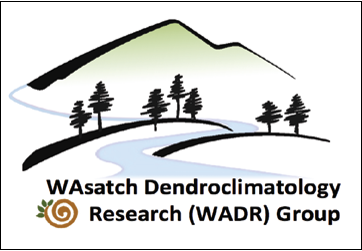Document Type
Article
Journal/Book Title/Conference
The Holocene
Volume
24
Issue
7
Publisher
Sage
Publication Date
4-29-2014
First Page
805
Last Page
813
Abstract
Utah’s Great Salt Lake (GSL) is a closed-basin remnant of the larger Pleistocene-age Lake Bonneville. The modern instrumental record of the GSL-level (i.e. elevation) change is strongly modulated by Pacific Ocean coupled ocean/atmospheric oscillations at low frequency, and therefore reflects the decadalscale wet/dry cycles that characterize the region. A within-basin network of seven tree-ring chronologies was developed to reconstruct the GSL water year (September–August) level, based upon the instrumental record of GSL level from 1876 to 2005. The result was a 576-year reconstruction of the GSL level that extends from 1429 to 2005; all calibration-verification tests commonly used in dendroclimatology were passed. The reconstruction explains 48% of the variance in the instrumental GSL level and exhibits significant periodicity at sub-decadal scales over the past six centuries. Meanwhile, predominance of multi-decadal periodicity in the early half of the record shifted to quasi-decadal dominance in the latter half, and this is consistent with that of proxy reconstructions of the Pacific Decadal Oscillation. The GSL-level reconstruction is a crucial component to improving our insight into the possible controls of coupled ocean-atmosphere interactions on precipitation delivery.
Recommended Citation
DeRose, R. Justin; Wang, Shih-Yu (Simon); Buckley, Brendan M.; and Bekker, Matthew F., "Tree-Ring Reconstruction of the Level of Great Salt Lake, USA" (2014). Wasatch Dendroclimatology Research. Paper 4.
https://digitalcommons.usu.edu/wadr/4


